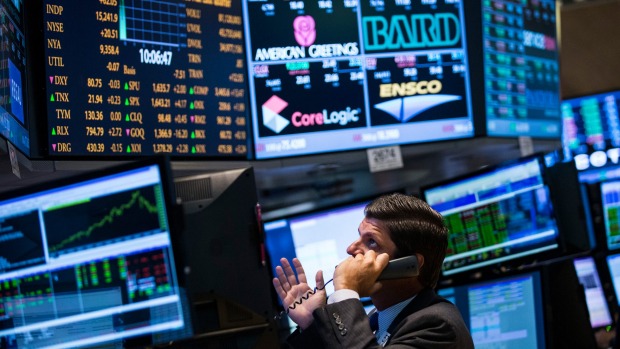Top 5 Beginner Books for Algorithmic Trading
Algorithmic trading is gaining popularity as it proves itself in the trading world. It involves trading systems that rely on mathematics and computerized programs to output different strategies in trading. Some of the output data includes timing, price, and volume, calculated to produce optimum trading instruction. Often used as an investment strategy or in trade, its momentum is gaining speed as it proves itself in the market.
By 2006, fully one third of all stock trades in Europe and the United States were motivated by algorithms, with that number climbing by leaps and bounds each year.
Algorithmic trading can also be utilized by individuals who are interested in trading but have no real hands-on experience, or find the numbers to be overwhelming. More and more people are asking how they can get started in algorithmic trading, and there are a fair number of good books out on the market that can be helpful in understanding terminology and building the confidence needed to enter into the world of trading.
The 5 top books on the market for algorithmic trading are as follows-
Inside the Black Box by Rishi K Narang.
This book is our top pick in the 5 best books on the market because of its excellent reviews from people of all walks of life who claim that with no help besides the material presented in the book, they were able to confidently start trading using the principles of algorithm. Some of the highlights from his book include:
- Common quant system structures
- How quants capture alpha
- High-frequency trading nd the infrastructure that supports it
- How to evaluate quant managers and their strategies
This book is touted as being readily understandable and uniquely easy to follow. A true font of important information for any beginner in the trading world, you would be hard pressed to find a better book to start out with.
Algorithmic Trading and DMA by Barry Johnson, calls itself an introduction to direct access trading strategies.
We recommend this book for its simple literary illustrations of trading strategies coupled with examples and figures, which allow the reader to clearly understand the function of trading scenarios. Johnson goes to great lengths to explain the variables determining prices, liquidity, market impact and volatility. He makes available to his readers extensive references and summaries closing out each chapter, which make a fine addition to the book. Called a “model of clarity” by readers, Algorithmic Trading and DMA emerges at the perfect time to unite lay-person with complicated process.
Building Winning Algorithmic Trading Systems by Kevin Davey.
Written by a well-qualified, experienced trader, Davey does more than give rules and examples, although they are in there too. In his book, Davey reveals his personal strategy that won him the World Cup Championship of Futures Trading. The book is un-presumptuous and engaging. It contains real-world advice and easily understood direction. From an author who actually makes his living at what he is trying to sell here, this book is inspiring and dynamic. Davey knows how to talk the talk, but he goes a step further and shows his audience that he can just as easily walk the walk- and he does.Readers’ reviews say the book is worth every penny it costs. Most refer to it as an investment or a down payment of revenues to come.
Algorithmic Trading: Winning Strategies and their Rationale by Ernie Chan.
This second book on algorithmic trading by Chan delves deeper than did his first, Quantitative Trading. While Quantitative Training was quite well received by his audience, its main focal point was never about strategy in trading. Reader feedback brought about the writing of this second book, which really brings home the practical and useful strategy that brings results in the market. This more practical guide contains extensive examples of strategies that Chan himself has implemented, along with unique insight that can only come from someone who has spent a great deal of time trading. An interesting read, Algorithmic Trading discloses a variety of strategies including-
- How to choose the right automated execution platform
- Simple techniques for trading mean-reverting portfolios
- Mean-reverting strategies for stocks
- Newer momentum strategies
Chan’s book takes into consideration that mathematics and software are the basic languages of algorithmic trading- and doesn’t deviate very far from that understanding at any time along the way.
The 1-Hour Trade: Making Money With One Simple Strategy, One Hour Daily by Brian Anderson.
This book is a little bit different than the rest of our top picks in that the other four really go into depth and explanation of the many strategies involved and at your disposal in algorithmic trading. This one does not, but what it does, it does well. Author Brian Anderson has been in the trade game for a lot of years and has in that time made just about every mistake that can be made- and emerged on the other side successfully. His intent is to save the reader from making those mistakes, drawing their attention to a simple but effective trade formula he now uses. While not a get-rich-quick formula, he has proven that it does work. It takes the type of person who is ready for the hard work and can commit to the mental discipline it takes to succeed. Anderson’s readers are in agreement that while a bit different in theory, this book has a winning strategy. It comes highly recommended by the lay-person and businessman alike.
While using reputable books like these can enhance the trading experience and certainly give you a better knowledge and insight into the trade world, it’s always necessary to keep in mind that no one formula is fool-proof; nothing is a guarantee of success. With increased hands-on experience and great advice from the pros, combined with hard work and dedication, it is possible to build a portfolio in trading. These books will no doubt give you the best possible advantage.











